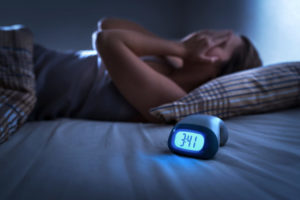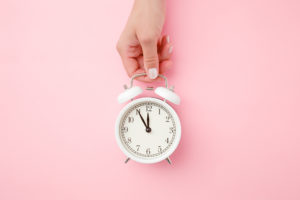
Put Bedtime Struggles to Sleep Without Melatonin
Last updated on January 28th, 2022 at 04:48 pm

Does bedtime feel like a battle in your household? It’s common for kids to fight sleep for several reasons — excitement, upsets, or bad dreams, just to name a few. But spending hours at their bedside trying to settle them down is exhausting. Kids need their shuteye, and so do parents. In fact, trouble sleeping is a widespread problem for everyone. One in three adults gets less than seven hours of rest a night on average. It’s estimated that 40% of kids and teens experience trouble falling asleep or staying asleep too.
You’ve probably heard that melatonin could help, or maybe you’ve already used it. But what exactly is it, and is it the right choice for your family?
What Is Melatonin?
“Melatonin is a hormone secreted by the pineal gland in the brain and it regulates the sleep-wake cycle,” says pharmacist Christophe Merville, director of Education & Pharmacy Development at Boiron USA. He says that starting late in the afternoon, production of the hormone slowly ramps up to prepare your body for sleep in the evening. This continues into the night to ensure you stay asleep.
When it comes to sleep aids, there’s a lot of misconceptions about melatonin. For example, many people consider melatonin as natural, but most supplements are synthetically made. Another concern is that they may not be accurately labeled, so there’s a risk that the supplement may contain more or less melatonin than the amount listed on the bottle.
“Taking too much may actually interfere with the body’s natural production of melatonin,” says Merville, adding that regular use could also cause daytime drowsiness, dizziness, nightmares, and other unwanted effects in both adults and children.
What Are Some Alternatives?
First, Merville suggests setting up good sleep habits for your family. Putting screens away and avoiding caffeine before bedtime, establishing regular sleep/wake times, and sticking to a nightly routine can help encourage relaxation and slumber. And don’t forget about the bedroom itself. Some children need a very dark environment to sleep in so blackout curtains may help. Others benefit from a fan or white noise machine.
“If you’ve tried various approaches and your little one is still having difficulty falling asleep or staying asleep, a homeopathic medicine like SleepCalm Kids is a good next step,” says Merville. SleepCalm is uniquely formulated with plant-based and other pure active ingredients that work to restore a natural sleep pattern disturbed by occasional sleeplessness, restlessness, or intermittent awakening.* And because it doesn’t contain melatonin, there’s no next-day grogginess to contend with.
SleepCalm Kids is available in pre-measured liquid doses for children ages 3 and up, and there’s also meltaway tablets for adults or children 12 and older. You can find these medicines at natural product stores and select pharmacies or shop online.
To learn more about all the ways homeopathy can help your family with sleep-related issues and much more, visit BoironUSA.com/wellnesstips.
*Claims based on traditional homeopathic practice, not accepted medical evidence. Not FDA evaluated.
Share article:
Related Articles:


Are Screens Stealing Your Sleep? Quick Tips to Reduce the Effects of Blue Light





4 thoughts on “Put Bedtime Struggles to Sleep Without Melatonin”
Any chance you could send me a sample of Sleep Calm? Both my husband and I have been using Mid-Nite but would like to get off melatonin. I’d really appreciate it! Thank you.
Linda Zweigoron
Hi Linda, please give us a call at 1-800-BOIRON-1 and we’d be happy to assist you.
I won’t buy any product that doesn’t put ingredients and price in bold easy-to-read print. This is OK on price but fails on readable ingredients. Bye!
Hi Brooke, homeopathic active ingredients are named in Latin following the Homeopathic Pharmacopoeia of the United States, which establishes standards of quality for homeopathic medicines. Common names of these ingredients are readily available in any Homeopathic Materia Medica, or give us a call at 1-800-BOIRON-1 and we’d be happy to help. The ingredients in SleepCalm Kids are homeopathic dilutions of chamomile (Chamomilla), yellow jasmine (Gelsemium), henbane (Hyoscyamus niger), potassium bromide (Kali bromatum), passionflower (passiflorica incarnata), and thorn apple (Stamonium).